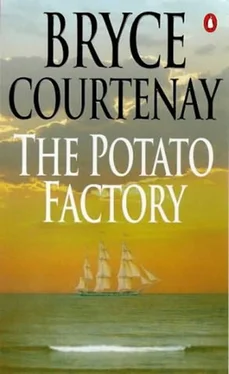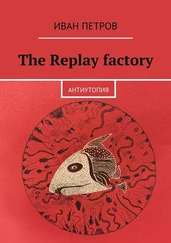The judge sniffed and looked about the court, finally allowing his eyes to rest again upon Mary. 'A sheep or a pig or a game bird, though valuable to its owner, is seldom an object of great love unless it be a champion.' He paused and looked about him as though he were delivering his message at the Lord Mayor's Banquet. 'But a cat? A cat is another matter. A cat to its owner can be an unquestioning and loyal friend when no other may exist. That the cat in question, so brutally disposed of in this case, was an object of great love and comfort to its owner is not, for one moment, to be doubted.' He looked across at Mary again. 'You did cold heartedly and with malice aforethought do away with one Waterloo Smith, a cat owned by the plaintiff, Miss Maude Smith.' He wagged an admonishing finger at Mary. 'This court cannot take lightly such a callous and deliberate action to bring about the death of one of God's innocent creatures.' The judge paused and glared at the jury, who had previously found Mary guilty. It was as if he felt that guilty was probably not sufficient, that perhaps they should have pronounced her 'Very guilty' or 'Guilty beyond normal guilt'. He turned again to Mary. 'You have been found guilty and I choose therefore to sentence you in exactly the same way as if you had stolen and killed a prize sheep, or bull, or pig, or poached a brace of pheasants from the country estate of an honest gentleman.'
The judge brought his gavel down as though he were about to pronounce sentence, but, in fact, the judicial hammer was intended to serve only as a punctuation. Warmed to the task of castigation, he now continued: 'As to the second charge against you. You found yourself in a position of great privilege in the home of Sir James Barker who, due to the kind interceding on your behalf of his butler…' The judge paused to look at his notes, 'er… Thomas Bishop, it was agreed by Sir James that you should have the full use of his considerable library. In this one magnanimous gesture he was, in effect, opening up to a mere servant girl, if I should not be mistaken a laundry maid, the whole sublime world of literature and learning. It appears that you did not with honesty and a full heart, mindful of the great privilege accorded you, take advantage of this opportunity. On the contrary, in the face of such remarkable generosity, you chose instead…' he paused, searching for the correct words. 'You who have shown intelligence enough to have mastered reading and writing, to plunder this depository of knowledge by stealing from it one of its most precious jewels!'
The judge now brought his gavel down three times and in an even more sonorous voice than he had previously employed picked up his written judgment and commenced to read it.
'Mary Klerk, also known as Mary Abacus, it be therefore ordered and adjudged by this Court, that after having served three months in Newgate Gaol in accordance with the previous judgment of this court, you be transported upon the seas, beyond the seas, to such as His Majesty King George IV, by the advice of his Privy Council, shall see fit to direct and appoint, for the term of seven years!'
The judge's gavel rose up and went down upon its block one last time. The sound of it reverberated around the dusty, close-smelling and largely empty courtroom, and Mary's life was once again plunged into the darkest despair as she was manacled and led from the dock to the public cells, the 'bird cages' in the dungeons of Newgate Gaol. For Mary it was a descent back into hell.
It was her companions, those women with her in the cage, against whom she knew she must needs take the greatest care. There were few who would not tear her eyes out for the promise of a tot of gin and, in their drunken state, when the candles burned down, she would need to constantly defend herself against the groping hands that would possess her. At night, the grunting, panting cries of the fornicating women intensified when the younger women were seduced or raped by the larger 'bull whores' who owned the darkness.
Mary attempted to keep to herself, occupying one small corner of the large cell which contained eleven others. She had been placed with prostitutes who had been caught at various crimes – thieving, drunkenness and destroying public or private property. At the approach of a drunken woman Mary would reveal her blackened talons and snarl. But it soon became apparent that she could not remain separate. In a gaol cell it is the strong who rule and the weak who must be made to submit. The time would come, Mary knew, when she would be subjected to the needs of the strongest in the cage. Mary waited until her fellow inmates were drunk and distracted and then she bribed a turnkey to have a tinsmith visit her.
She instructed him to make four brass rings half an inch in breadth which fitted tightly to the topmost knuckle of the second and third fingers of each hand. Mary then told the tinsmith to fashion from each band a metal talon, sharpened to a point and arched, an inch beyond the extremity of each finger, to give the effect of four vicious nails. The tinsmith delivered them the next day, demanding an extortionate price in return for his speedy workmanship. But he had created weapons for her hands most fearsome to behold and Mary was happy to pay.
Mary attached the lethal hooks to her fingers and saw that they fitted well, then she placed them in the pocket of her pinny. The final meeting with the tinsmith had taken place in the morning before eight of the clock while her cell mates still slept, snoring and blubbering and often shouting in some nightmarish dream, unaware of her newfound protection. She knew that they would soon awaken and scream for water to quench their parched tongues and cool their throbbing brows. She was now ready to make her presence felt.
Mary paid the turnkey twopence for a large bucket of water and a ladle which she placed in the corner beside her. The water was their daily entitlement, an allowance of three gallons for each communal cell. The turnkeys demanded payment for it, although it was intended that it should be free. There was very little that came free in Newgate, and starvation was as much a cause of death within its walls as was gaol fever or brutality. If the twopence was not paid the turnkey would sell the bucket of precious water for a penny to an adjacent cage or, if there was no hope of gain, place it at his feet and piss into it before handing it into the cell.
Mary waited for the first of the women to wake up. It was Ann Gower, who couldn't remember when she hadn't been on the streets. She was probably still in her thirties but the effects of gin and her brutal life had left her looking twenty years older. Two of her front teeth were missing and matted brown hair hung over her eyes, which she was now in the process of knuckling in an attempt to clear her head of the gin she'd swallowed the previous night.
'Water, where's water?' she mumbled, as she stumbled over to the bars of the bird cage. Grabbing them she shouted, 'Bring the fuckin' water!' The shrill sound of her own raised voice caused her to hold her head and groan in agony.
'Ere,' Mary said, 'Over 'ere, love.'
Ann Gower turned slowly and looked at Mary through bloodshot eyes. 'You? Little Miss 'Orner what sits in a corner?'
Mary laughed, surprised at the woman's wit considering the state of her health.
'Wotcha fuckin' laughin' at?' the other woman snarled.
Mary, still with a smile on her face, dipped the ladle into the bucket and held it up towards Ann Gower. 'Drink.'
Ann Gower's hands were shaking as she took the large wooden spoon. She brought it unsteadily up to her lips and managed to spill a good portion of it down the front of her dirty pinny and upon the floor. The remainder she drank, slurping greedily. 'More!' she demanded, handing the ladle back to Mary.
Читать дальше












